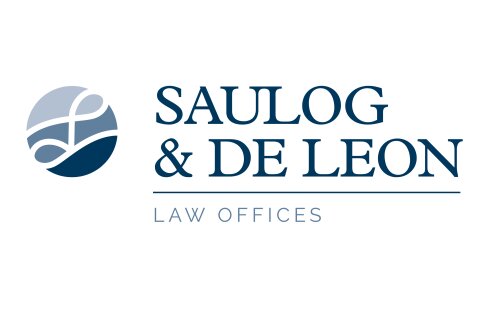Best Water Law Lawyers in Philippines
Share your needs with us, get contacted by law firms.
Free. Takes 2 min.
Or refine your search by selecting a city:
List of the best lawyers in Philippines
About Water Law in Philippines
Water Law in the Philippines refers to the body of rules, regulations, and case law dealing with the conservation, utilization, management, and protection of the country's water resources. Water Law covers the appropriation, use, control, and development of surface and groundwater, including issues related to water rights, pollution control, irrigation, fishing, and hydropower. The primary legal instrument is the Philippine Water Code (Presidential Decree No. 1067), supplemented by other laws such as the Clean Water Act, the Local Government Code, and various environmental regulations. These laws establish a framework for acquiring water permits, setting priorities for use, and ensuring sustainable management of water resources for present and future generations.
Why You May Need a Lawyer
Many individuals, businesses, and communities encounter legal challenges involving water law. You may need a lawyer in situations such as:
- Securing a water permit or defending a permit from revocation
- Settling disputes over water rights or allocation among users
- Facing penalties or sanctions due to alleged illegal extraction or pollution of water bodies
- Navigating legal requirements for irrigation, fishery, hydropower projects, or waterworks
- Complying with government regulations related to water safety, sanitation, or quality standards
- Engaging in land development or real estate projects that impact water resources
- Protecting community access to water against commercialization or privatization
- Initiating or responding to complaints about water contamination or environmental impacts
- Resolving conflicts between public and private water use
- Understanding your legal rights and obligations in water-related matters
A lawyer with expertise in Water Law can guide you through complex rules, represent you before administrative agencies or courts, and help mediate or resolve disputes effectively.
Local Laws Overview
The legal framework for Water Law in the Philippines is grounded primarily in the following:
- The Water Code of the Philippines (PD 1067): This sets the policies for the appropriation, control, conservation, and protection of water resources. It defines water rights, the process for obtaining permits, and the order of priority for water use.
- Clean Water Act of 2004 (RA 9275): This law regulates water quality, prohibits pollution, and provides guidelines for wastewater discharge. It mandates sanitary management of public and private establishments affecting water sources.
- National Water Resources Board (NWRB): The NWRB is the main government agency overseeing water resource management. It issues water permits and monitors their compliance.
- Local Government Code (RA 7160): Local government units (LGUs) share responsibilities for water supply, sanitation, and the issuance of certain permits within their jurisdiction.
- Indigenous Peoples Rights Act (RA 8371): This protects the customary rights of indigenous cultural communities over ancestral waters.
These laws are supplemented by special regulations on irrigation, dam construction, fisheries, and sanitation. Legal issues often arise over water allocation, pollution control, conflicting permits, and the validity of water rights. Understanding the interplay among these various laws, as well as the involvement of both national agencies and local governments, is crucial for anyone involved in water resource concerns.
Frequently Asked Questions
What is a water permit and why is it required?
A water permit is a legal authorization issued by the National Water Resources Board (NWRB) allowing the use of surface or groundwater for specific purposes such as domestic, irrigation, power generation, or industrial use. It is required to ensure proper allocation, prevent over-extraction, and protect water sources for public interest.
Who has priority in the use of water resources?
The Water Code sets priorities as follows: domestic and municipal use, irrigation, livelihood (fishing, animal husbandry), industrial use, and power generation. In times of shortage, higher-priority users are favored.
Can a private individual own a water source?
Water resources are owned by the State and cannot be privately owned. However, individuals and entities may be granted the right to use water through permits, provided they comply with legal requirements.
How are disputes over water rights resolved?
Such disputes are generally resolved by the NWRB through mediation or adjudication. Unresolved cases may be elevated to regular courts for final disposition.
Is water pollution a punishable offense in the Philippines?
Yes. The Clean Water Act and related environmental laws penalize the discharge of untreated or hazardous waste into water bodies. Offenders may face fines, permit suspension, or even criminal charges.
What steps should be taken to obtain a water permit?
Applicants must submit a formal request to the NWRB with supporting documents, such as location maps, project description, and endorsements from local governments. Public notice and technical evaluation are part of the process.
Can water permits be transferred or inherited?
Water permits are generally not transferable unless authorized by the NWRB. However, they may be transferred by succession, such as through inheritance, subject to compliance with NWRB rules.
What role do local government units play?
LGUs help regulate water supply and sanitation services, enforce zoning ordinances, and occasionally issue certain permits within their jurisdictions, in coordination with national agencies.
Are indigenous communities' water rights recognized?
Yes. The law acknowledges the customary rights of indigenous peoples over ancestral waters and provides them with priority rights for its usage.
How can violations of water laws be reported?
Complaints can be filed with the NWRB, the Department of Environment and Natural Resources (DENR), or local government offices. These agencies have procedures for investigating and addressing violations.
Additional Resources
If you need more information or wish to file an application or complaint, the following organizations and agencies can help:
- National Water Resources Board (NWRB): Main agency for water permits and dispute resolution
- Department of Environment and Natural Resources (DENR): Agency for environmental and water quality issues
- Local Government Units (LGU) Water and Sanitation Departments
- Philippine Commission on Human Rights (for violations affecting communities)
- National Irrigation Administration (for irrigation-related matters)
- Environmental Legal Assistance Center (ELAC) and other NGOs specializing in environmental law
Engaging with these organizations can provide legal information, technical guidance, and support for your concerns.
Next Steps
If you require legal assistance on matters involving Water Law in the Philippines, consider the following steps:
- Identify your legal issue - Clearly determine whether your concern is about water permits, allocation, disputes, sanitation, pollution, or water resource development.
- Gather relevant documentation - Prepare supporting documents such as titles, water use records, maps, or communications with authorities.
- Consult a licensed lawyer specializing in Water or Environmental Law - Schedule a meeting to discuss your situation and get advice tailored to your needs.
- Contact the appropriate government agency - For many concerns, first approach the NWRB, DENR, or relevant LGU for procedures, applications, or complaints.
- Consider mediation or alternative dispute resolution - Many water disputes can be resolved out of court through mediation or ADR mechanisms provided under the law.
Seeking early legal guidance helps protect your rights, ensures regulatory compliance, and avoids costly and lengthy disputes. Professional legal support is crucial for managing complex water law issues and securing your interests.
Lawzana helps you find the best lawyers and law firms in Philippines through a curated and pre-screened list of qualified legal professionals. Our platform offers rankings and detailed profiles of attorneys and law firms, allowing you to compare based on practice areas, including Water Law, experience, and client feedback.
Each profile includes a description of the firm's areas of practice, client reviews, team members and partners, year of establishment, spoken languages, office locations, contact information, social media presence, and any published articles or resources. Most firms on our platform speak English and are experienced in both local and international legal matters.
Get a quote from top-rated law firms in Philippines — quickly, securely, and without unnecessary hassle.
Disclaimer:
The information provided on this page is for general informational purposes only and does not constitute legal advice. While we strive to ensure the accuracy and relevance of the content, legal information may change over time, and interpretations of the law can vary. You should always consult with a qualified legal professional for advice specific to your situation.
We disclaim all liability for actions taken or not taken based on the content of this page. If you believe any information is incorrect or outdated, please contact us, and we will review and update it where appropriate.
Browse water law law firms by city in Philippines
Refine your search by selecting a city.














